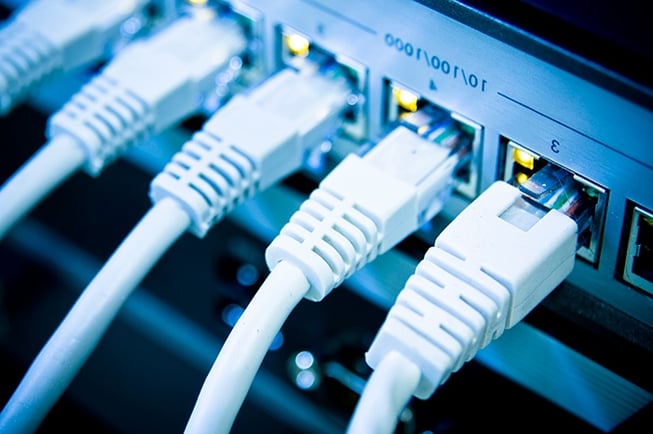
Protecting lone workers is an increasing concern as the number of employees working alone, whether in the field or in the office outside core hours, increases. You probably already have a telecom system to help look after your lone workers - but is it fit for purpose, or should it be improved?
Beware of blind spots
It's easy to think that lone workers are okay now everyone has a mobile phone. But have you thought about what happens if they're out of network coverage? That doesn't just apply to field workers - even quite small industrial sites sometimes have mobile blind spots. Sometimes radio can do the job better than mobile technology, or you might want to consider a alarm devices for remote workers. A member of staff whose vehicle breaks down on a country road where there's bad or no mobile coverage isn't going to thank you if you haven't thought that issue through.
You may also have a management blind spot with regard to 'accidental' lone workers - employees whose job descriptions don't say that they'll be working on their own, but who end up doing so because of others staff's absence, changed shifts, or simply because they came in early to avoid the rush hour. Make sure that these people are covered, as well - and that includes you, as well as your staff, if you're on site alone.
Different strokes for different folks
Many firms try to provide a "one size fits all" lone worker system. However, different staff might need different types of device. It's worth sitting down and talking to staff about the challenges they face, and how you can support them better. How safe do your lone workers feel? What kind of system would make them feel safer?
For instance, workers who regularly work at height might benefit from having an automated alarm that will trigger if their phone is horizontal for a specified length of time. If a fall leaves them unconscious, you can't expect them to phone in. Staff who deal with clients or the public on their own may prefer a discreet panic button which they can activate without the other party being aware.
Equally, different situations may require different emergency responses. Many older systems are not capable of being customised for different workers, types of work, or sites, leading to inefficiency in the use of the system. If you have an older system, this might be the time to take a good look and assess whether you could benefit from the 'bespoke' lone worker protection that a more configurable system can offer.
Support when you need it
You can have the best system money can buy, but it's worthless unless you can provide support once an alarm is activated. Do you have the right procedures in place to provide quick assistance? For instance, what happens if you're not at your desk when an incident occurs? Will the system automatically alert others and can it escalate until a response is obtained? If you don’t think you have enough resource to provide emergency support maybe you can use your other lone workers? Often, they make very good responders, after all they know the site, where the risks are and one day could quite easily be in the same situation themselves. In the case that an automated alarm is triggered because the worker is rendered unconscious that puts the onus of a response on to you to first find them prior to contacting the emergency services. – However, what happens if, for instance, a worker is injured while working at a remote location, how do you get help to the site in a timely way? Do you have a solution that can send alerts to a local response team?
If you haven't carried out a test of your systems, it's high time you did a test run. How long would it take you to find an unconscious worker? How long could a worker be in trouble before your system was alerted? If it's more than a few minutes - and in a disturbingly high number of cases it is - then you need to do something about it.
Real time systems are crucial
Many lone worker systems rely on staff phoning in or activating a contact every couple of hours. That's not much help if they have an accident just after calling in. A good system needs to be able to provide real time support.
You also need to ensure the system is robust. If you're relying on a single mobile base station, what happens if the base station goes down? A good system should at least notify you that there's a problem - better still a failover should be built in ensuring that coverage is continuous.
Where are your staff?
You know Fred is in trouble. The only problem is that you're not sure where he is. That's not a good situation to be in - and you should ensure your system helps you, whether with GPS waypoints, or a link to your workflow process, or to access control data backed up with a good comms system so a co-ordinated search can take place. If it doesn't, is it really fit for purpose?
Get an audit trail
Imagine your lone worker systems work exactly as intended in an emergency, but for whatever reason you're too late to help your employee. How do you prove the system worked? Does your system give you an audit trail? If it doesn't, you could be in trouble. Making sure your lone worker support has a good audit trail is just as important as ensuring your other health and safety documentation is up to date.
More generally, you need to think about whether your lone worker systems are properly integrated with your wider IT and telecoms systems. Keeping your lone worker telecoms separate from the firm's overall infrastructure can hamper the system's effectiveness, particularly when it comes to adequately escalating an emergency situation.





